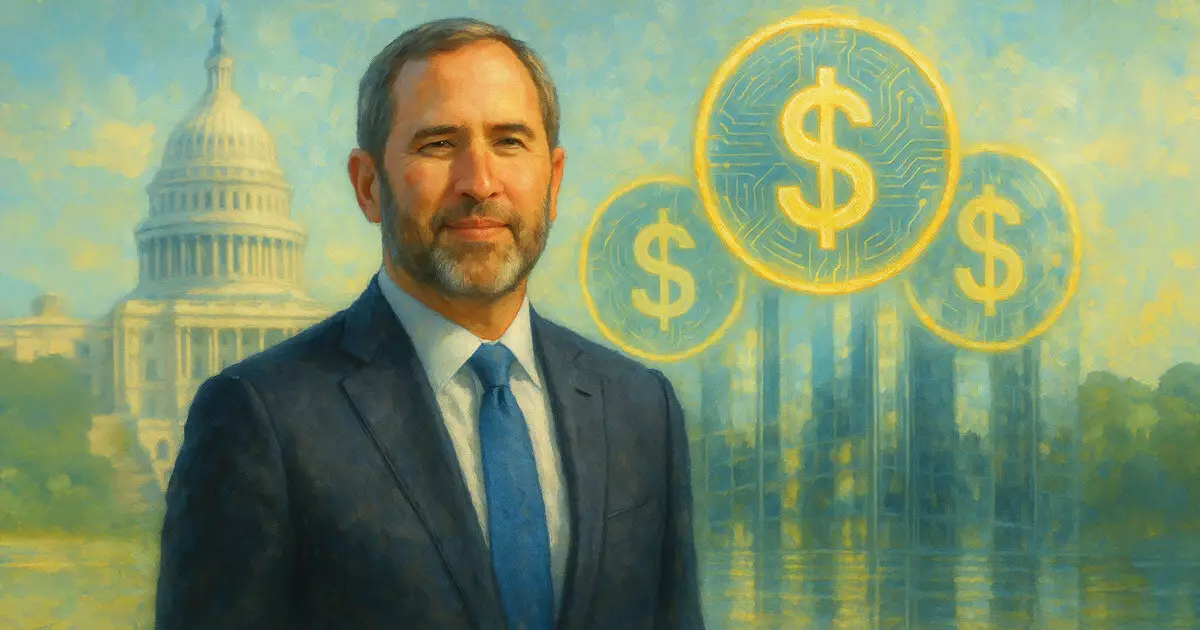The cryptocurrency industry is experiencing seismic shifts, and stablecoins are at the forefront of this revolution. Ripple CEO Brad Garlinghouse recently urged U.S. lawmakers to expedite regulatory frameworks for stablecoins, signaling a clarion call for vigilance over American financial sovereignty. In a detailed commentary posted on social media, Garlinghouse warned that the absence of coherent regulations could result in the U.S. forfeiting its competitive advantage in the global financial arena. This predicament underscores the irony: a country that prides itself on innovation may find itself lagging due to bureaucratic inertia.
A Missed Opportunity with the GENIUS Act
The recent failure of the U.S. Senate to advance the GENIUS Act—a proposed legislative measure designed to streamline federal regulation of stablecoins—has drawn significant criticism from financial leaders, including U.S. Treasury Secretary Scott Bessent. Voting 49-48 against the bill is not just a procedural setback; it’s emblematic of missed opportunities that could have fortified the dollar’s position in an increasingly multipolar financial landscape. Bessent aptly characterized the defeat as a “once-in-a-generation opportunity,” illustrating the singular relevance of stablecoins for enhancing America’s financial influence.
Stablecoins offer considerable advantages over volatile cryptocurrencies, achieving stable pricing through pegging to fiat currencies. However, without unified governance, the U.S. risks relegating stablecoins to a chaotic patchwork of state regulations, which can stifle growth and foster uncertainty. This fragmented regulatory environment could inhibit innovative strides that promise to revolutionize payments and cross-border transactions.
Global Adoption and Domestic Inaction
As global adoption of stablecoins accelerates—evidenced by a staggering transaction volume of $1.82 trillion reached in March 2025—it is astonishing how American lawmakers remain largely stagnant. The world is declaring its embrace of stablecoins, with entities such as Stripe and Meta signaling interest, while U.S. politicians stall. This is not merely a matter of technological evolution; it’s a question of national interests.
In a world where countries are racing to enhance their financial infrastructures, American inaction presents a clear disadvantage. The practical use cases for stablecoins demonstrate their utility in facilitating transactions that traditional banking systems fostered by red tape struggle to achieve. Yet, without clear rules illuminating the path forward, innovation will take root in other jurisdictions, where businesses are eager to capitalize on the burgeoning capabilities of stablecoins.
The Perils of Stagnation
The implications of inaction are profound. If U.S. lawmakers continue to procrastinate in establishing a solid regulatory framework, emerging competitors in the financial sector will capitalize on American hesitance. Countries that prioritize clarity and stability in their regulatory environments will attract investment, innovation, and talent, while the U.S. risks fostering an environment of uncertainty.
Garlinghouse’s call for urgency should serve as a wake-up call for policymakers. Dilly-dallying not only undermines the competitive edge but also potentially jeopardizes the financial well-being of American citizens. Contrary to the ideals of progress and leadership, continued delay could plunge the U.S. into a status of mediocrity in an industry buoyed by innovation. The only question that remains is whether leaders will heed this warning or continue to gamble with the future of American finance.



















Leave a Reply